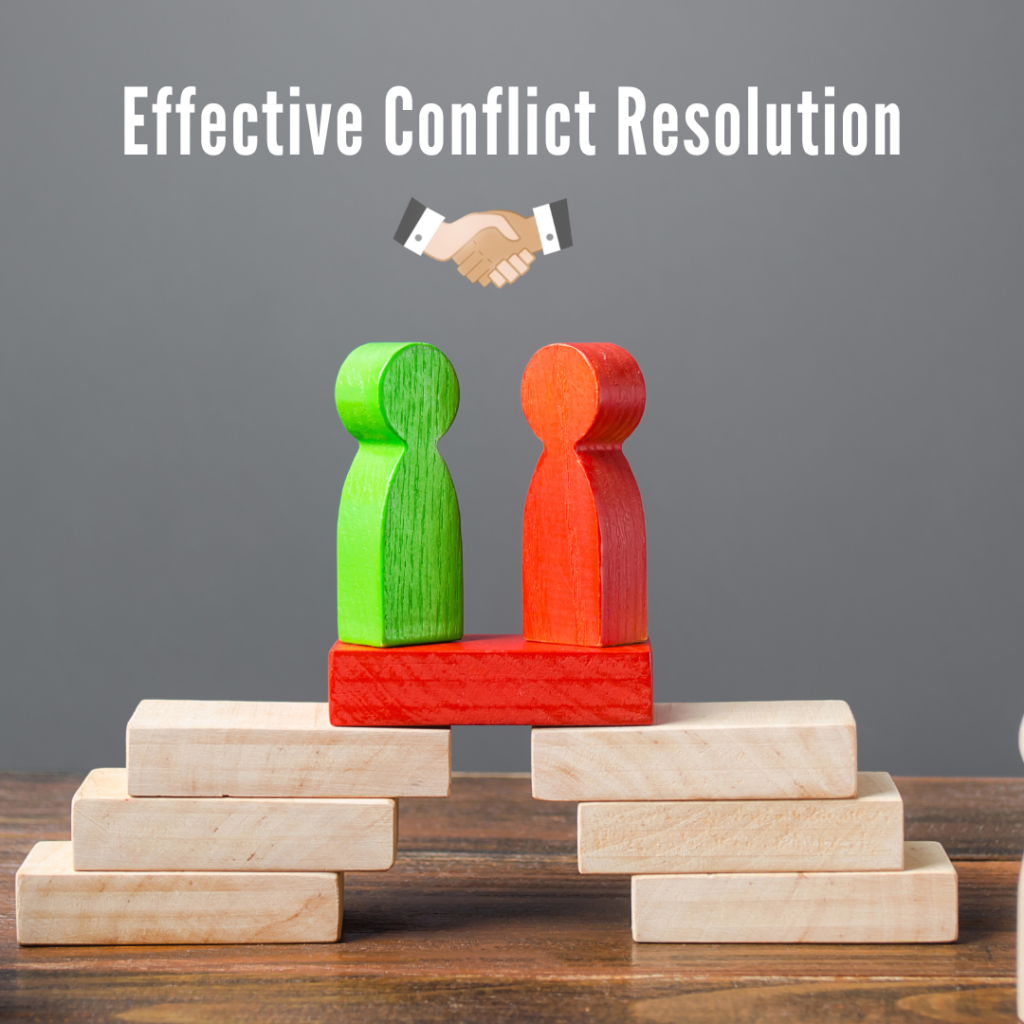Conflict is an inevitable aspect of human interaction, arising from differences in opinions, interests, or values. While it may seem disruptive, conflict carries the potential for growth, innovation, and enhanced relationships when managed effectively. Understanding the types of conflict, its significance in personal and corporate contexts, and strategies for resolution are crucial for fostering constructive outcomes.
Types of Conflict:
• Interpersonal Conflict: Arises between individuals due to differing personalities, communication styles, or goals.
• Intrapersonal Conflict: Occurs within an individual, stemming from internal struggles such as indecision or conflicting values.
• Intragroup Conflict: Emerges within a group or team, often due to disagreements over tasks, roles, or resources.
• Intergroup Conflict: Involves conflicts between different groups or departments within an organization, often fueled by competition or perceived injustices.
Importance in Personal and Corporate Life:
In personal life, conflict provides opportunities for individuals to express their needs, assert boundaries, and deepen understanding within relationships. In the corporate world, conflict can lead to innovation, improved decision-making, and stronger team dynamics when managed constructively. However, unresolved conflicts can hinder productivity, create toxic work environments, and damage morale.
Effective Conflict Resolution:
• Communication: Open and honest communication is vital for addressing underlying issues and finding mutually beneficial solutions.
• Active Listening: Encouraging all parties to express their perspectives while actively listening fosters empathy and understanding.
• Collaboration: Seeking win-win solutions through compromise and collaboration promotes positive outcomes for all involved.
• Mediation: Involving a neutral third party can help facilitate constructive dialogue and reach resolutions acceptable to all parties.
• Conflict Management Training: Providing employees with training on conflict resolution techniques equips them with the skills to navigate conflicts effectively.

Utilizing Conflict in Corporate Training:
Incorporating conflict scenarios and role-playing exercises into corporate training programs can help employees develop essential conflict management skills. By simulating real-life situations, participants learn to identify triggers, practice active listening, and explore creative solutions. Additionally, team-building activities that encourage collaboration and communication can preemptively address potential conflicts by strengthening relationships and fostering a culture of openness.
Soft Skills Training for Conflict Management:
Soft skills such as communication, empathy, and emotional intelligence play a crucial role in effective conflict resolution. Soft skills training programs focus on developing these interpersonal abilities, empowering individuals to navigate conflicts with professionalism and empathy. By enhancing self-awareness and understanding of others’ perspectives, employees can de-escalate tensions, build trust, and foster productive working relationships.

In conclusion, conflict is a natural and inevitable aspect of human interaction, both in personal and corporate settings. While conflict may initially appear disruptive, it presents opportunities for growth and innovation when managed effectively. By understanding the types of conflict, employing effective resolution strategies, and investing in conflict management training, individuals and organizations can leverage conflict as a catalyst for positive change and growth.





Leave a Reply